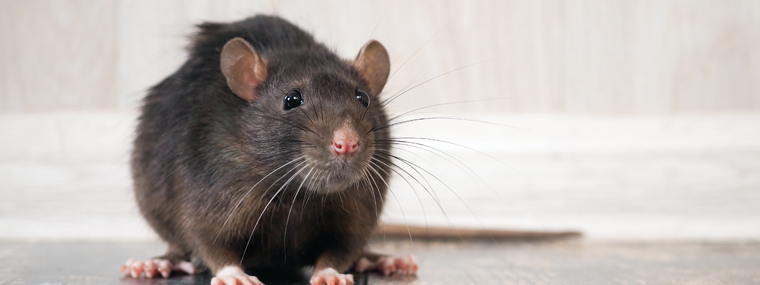
A Rodent Problem
By Ryan D. Poliakoff / Published December 2019

Q
uestion:
I own a condominium in Sarasota, Florida, that has had a rodent problem since January 2019. The association’s attempts to abate and exterminate have been intermittent and ineffective. On October 5th, a dead rat was removed from the space above my unit, bringing the total to 43. Traps have not caught any more, yet there are nightly sounds of rodent activity in the ceiling and walls. The board and the association’s management company are aware of the problem.
At the October 22nd board meeting, two bids for new extermination companies were presented. I was told that the board is reviewing them. No further information was provided except that the dryer vent cleaning company has been asked to look for possible rodent entry during their work. Is this a case of negligence? What do you advise, please? Thank you in advance for your expertise and time.
L.K.
Answer:
Problems with insect and rodent infestations in condominiums can be extremely troubling for a number of reasons, including that it is not always possible for a unit owner to solve the problem on his or her own. Often, the vermin are traveling through the common element walls, and the only way to resolve the infestation is to do so by treating the entire community. Some condominium declarations expressly provide that the association is responsible for pest control; but, even if that is not the case in your association, I think that the eradication of rodents living in the common elements (such as the roof or inside the perimeter walls of the unit) is part of the ordinary maintenance of those elements, so it would still be the association’s responsibility. The Condominium Act, at Section 718.113, Fla. Stat., provides that “maintenance of the common elements is the responsibility of the association;” and almost certainly your own declaration of condominium provides the same.
From what you describe, it does not seem as if the association is overtly shirking this responsibility, but instead has simply been ineffective in controlling the infestation. So, and as you’ve suggested, any liability would fall under the legal theory of “negligence”—did the association have a duty to act (likely yes, as discussed above); did it fail to exercise reasonable care in fulfilling that duty; did that failure to use reasonable care actually cause the injury; was it foreseeable to the association that its failure to act reasonably would lead to your damages; and were you or your property actually damaged as a result?
There are quite a few arbitration cases (a frightening number, really) that involve condominium associations bringing actions against unit owners, often hoarders, to force them to clean their units and eradicate a rodent or insect infestation inside their units (which infestation was affecting the other units and residents); or sometimes asking the arbitrator to order the unit owner to allow the association to exterminate a unit, on its own. I have, how-ever, seen very few cases involving an association’s failure to eradicate vermin or insects that are living in a common element.
To evaluate the question of whether the association has acted negligently, we would need to know far more information about the steps that have been taken so far by the exterminator. Has the exterminator recommended a course of action to the board, but the board ignored it, perhaps because of cost? Or, in contrast, has the exterminator simply not recommended a reasonable course of action? One can’t reasonably expect layperson board members to know what steps must be taken to eradicate a rat infestation. In the end, the board has to rely on its experts, so it’s critical to know what the exterminator has done and what the exterminator may have recommended be done that may not have been accomplished. It is also possible that the exterminator, him or herself, has simply provided bad advice to the board or has done a bad job executing otherwise reasonable advice (in which event the negligence might be the exterminator’s, and not the board’s). If that’s the case, did the board have reason to know that they should not have been listening to the exterminator? The simple failure to eradicate the rodent problem, by itself, is probably not enough to establish negligence. It may be that it’s just a very difficult infestation to treat. The board seems concerned that their existing exterminator is not doing the job, as they are considering bids from new companies, so perhaps the board has also gotten tired of the lack of results.
If I were in your situation, I would immediately hire my own expert exterminator to investigate the problem and to provide me with explicit written advice as to how to proceed. I would then bring that report to the board of directors and ask them to implement the expert’s recommendations to once and for all treat the problem. If the board refuses, perhaps because the plan proposed by your expert would cost more than they were hoping to spend, I would consider whether it is worth investing your own money to implement the solution so that you are free of the rodents once and for all. Afterwards, you can decide if bringing legal action to recover your costs is appropriate. At that point, you will have established a far stronger negligence action—the board attempted to remediate a problem for many months, and failed; they were presented with an expert report detailing the required remediation steps, but refused to take those steps; and those steps, once undertaken, in fact remediated the infestation. You can make an excellent argument at that point that the board knowingly refused to take reasonable steps to remediate the rodent infestation, which refusal led to damage to your unit—a classic case of negligence.
Ryan D. Poliakoff
Partner, Backer Aboud Poliakoff & Foelster
Ryan D. Poliakoff is a partner of Backer Aboud Poliakoff & Foelster and serves as general counsel to condominiums, homeowners associations, and country clubs throughout South Florida. He is a Board Certified Specialist in Condominium and Planned Development Law and the co-author of New Neighborhoods—The Consumer’s Guide to Condominium, Co-Op, and HOA Living. He is also a frequent contributor at seminars and workshops for attorneys and board members, and he has written hundreds of articles for magazines and newspapers throughout the United States. He can be reached at rpoliakoff@bapflaw.com.
For more information about his firm, visit www.bapflaw.com.




